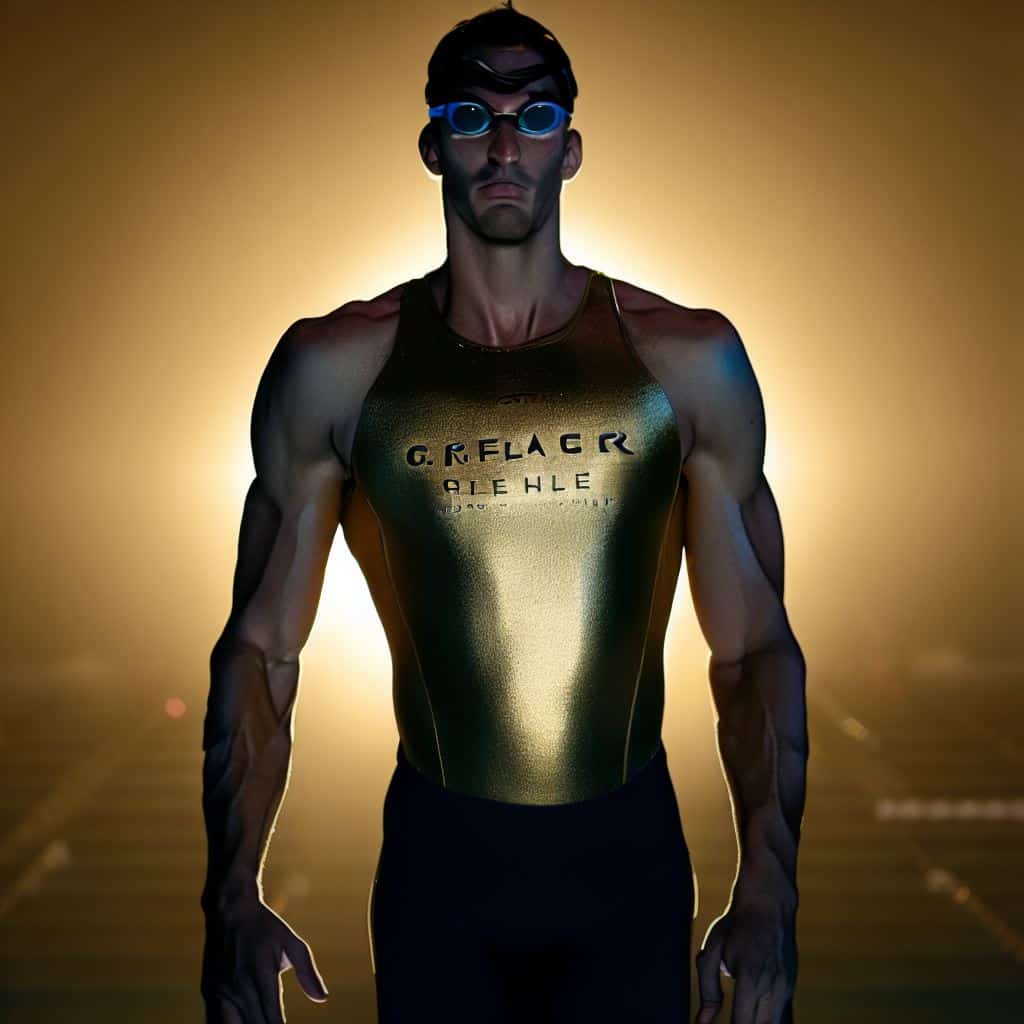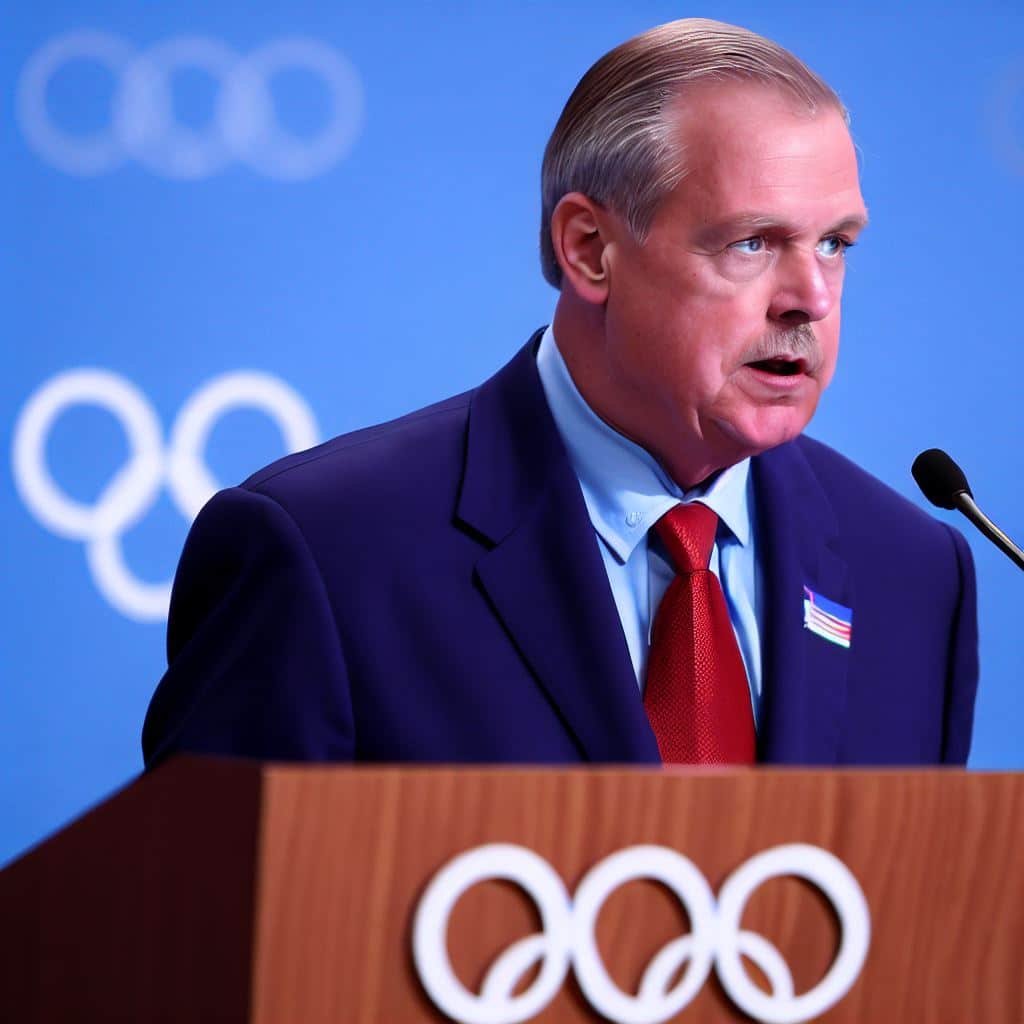In recent years, the conversation surrounding mental health has been gaining momentum, gradually shedding the stigma that has long been associated with it. At the forefront of this discussion within the athletic domain stands decorated Olympian Michael Phelps, whose candid revelations about his mental health struggles have struck a chord across the globe.
The article, “Greater Than Gold,” ventures into the initiative taken by Phelps and several of his fellow Olympians in addressing a topic that has traditionally been veiled in silence within the high-pressure environment of elite sports.
The journey to Olympic gold is often romanticized, leaving behind the veiled reality of mental health struggles many athletes endure. As the world tunes in every four years to witness awe-inspiring performances, little thought is generally given to the mental toll that the journey to such grand platforms could exact on individuals. It’s a narrative that has been quietly tucked away behind the glittering facade of medals and anthems.
However, the tide appears to be turning, thanks to the valiant efforts of individuals like Michael Phelps, who are using their platforms to usher in a new era of openness and support concerning mental health within the athletic community.
Michael Phelps, with a storied Olympic career that has seen him clinch 23 gold medals, has emerged as an unlikely but essential figure in championing the cause of mental health among athletes. His narrative, intertwined with his triumphant yet turbulent journey, resonates profoundly, illustrating that even the mightiest among us are not impervious to mental health challenges.
Phelps, along with other Olympians, has embarked on a mission to dismantle the preconceptions that have deterred many from seeking help, catalyzing a movement aimed at creating a supportive environment where athletes can openly discuss their mental health struggles and seek the necessary assistance.
Greater Than Gold Article Answers
| Question | Answer |
|---|---|
| The best alternate headline for this Article would be ___________. | D. Decorated Olympic Medalist Champions Mental Health |
| Which is the closest synonym for the word preconception? | C. expectation |
| Which passage from the Article best supports the idea that many Olympians struggle to get help? | D. Experts say the athletes’ own preconceptions can be another obstacle to getting treatment. Olympians often feel they need to project an image of fortitude. |
| Which question is not answered by the Article? | C. Who has been appointed to the U.S. Olympic Committee task force to address mental health? |
| Which two words are the closest synonyms? | B. fortitude and determination |
| This Article would be most useful as a source for a student research project on: | B. athletes who engage in advocacy |
| D. Olympic athletes will receive better mental health care thanks to Michael Phelps and other Olympians who have come forward | Because many of them compete in tense stuff |
| Based on the Article, the reader can predict that _______. | D. Olympic athletes will receive better mental health care thanks to the Michael Phelps and other Olympians who have come forward |
Tackling Shadows: The Unseen Challenges of Olympians

Every four years, the world stands still as the epitome of physical excellence is showcased on the Olympic stage. Behind the flash of cameras and shimmer of medals, however, lurks a less discussed yet profound challenge many athletes face – the challenge of maintaining mental wellness amidst immense pressure and expectations.
The essence of elite sports, inherently competitive and demanding, often brings about a silent crisis that, until recently, remained shrouded in stigma and misunderstanding.
Olympians’ Struggles
The journey to becoming an Olympian is one characterized by endless hours of rigorous training, sacrifices, and an unwavering commitment to achieving greatness. The athlete’s world is one of constant scrutiny, where every move is analyzed, and expectations soar sky-high.
The dream, embroidered in gold, often comes at a price. The pressure to perform, to live up to the image of invincibility, and to keep personal struggles at bay, paves the way for mental health issues that can be as crippling as any physical injury.
While the physical challenges associated with such a high level of competition are well-recognized, the mental aspect often goes unnoticed or unaddressed. The haunting fear of failure, anxiety over performance, or the existential crisis that looms post-retirement are battles fought behind closed doors, away from the prying eyes of cameras and fans. It’s a silent epidemic that rages on, largely unspoken, within the illustrious halls of Olympic glory.
Barriers to Seeking Help
The path to seeking help, ironically, is littered with hurdles. The culture of stoicism that pervades the athletic community often serves as a deterrent for those in need of mental health support. Preconceptions play a formidable role; the fear of appearing weak or vulnerable stands as a towering barrier to seeking help.
This, coupled with the lack of understanding or accessible mental health resources within the athletic community, further exacerbates the issue.
The traditional narrative has always glorified the physically invulnerable athlete, with little room for discussions surrounding mental health. The stigma attached to mental health concerns often leads to a cycle of silence and suffering. In a realm where mental fortitude is celebrated, admitting to struggles perceived as weaknesses can be a daunting task.
However, the narrative is gradually changing. The valiant disclosures by athletes like Michael Phelps are chipping away at the age-old misconceptions surrounding mental health in sports. It’s a burgeoning movement towards fostering an environment where athletes no longer feel confined by the shackles of stigma, and where mental health discussions occupy a rightful place alongside physical health.
The initiative to address and destigmatize mental health issues in sports is more than a call to action; it’s a testament to the indomitable spirit of athletes who, even in facing personal adversities, strive to create a better, more understanding world for their fellow sportsmen and women.
Through breaking the silence, they embolden others to seek the support they need, heralding a new era where mental health awareness and support are integral to the athletic community’s fabric.
Michael Phelps’ Role
Often dubbed as the most decorated Olympian of all time, Michael Phelps’ illustrious career is a tale of triumphs etched in gold. However, the narrative takes a deeper, more profound turn as Phelps opens up about his personal battles with depression and anxiety.
His candid disclosure offers a glimpse into the stark reality many elite athletes navigate through, portraying a tale of vulnerability amid victories. Through public speaking engagements, interviews, and social media, Phelps has effectively utilized his platform to shed light on the mental health challenges athletes face, rendering a voice to the often unspoken struggles that lurk behind the facade of invincibility.
His advocacy extends beyond mere words. Phelps has actively collaborated with various organizations to push for better mental healthcare resources and support systems within the athletic community. His mission: to alter the narrative surrounding mental health in sports, ensuring that athletes have the necessary support and understanding to manage their mental well-being effectively.
By sharing his personal journey, Phelps not only destigmatizes mental health issues but also emboldens other athletes to share their stories, fostering a culture of openness and support that transcends competitive rivalries.
Collective Efforts
Michael Phelps is not a solitary voice in this critical discourse. Other Olympians have also stepped into the arena of advocacy, echoing the call for a more holistic approach to athlete welfare. The collective effort is slowly but steadily gaining traction, signifying a paradigm shift in how mental health is perceived within the athletic sphere.
Various initiatives, both individual and collaborative, are underway. Olympians are engaging in dialogues, sharing their personal experiences, and working alongside mental health professionals to create robust support systems.
The collective endeavor goes beyond mere awareness; it’s about creating an environment where mental well-being is prioritized alongside physical prowess.
Campaigns, workshops, and resources dedicated to mental health are gradually being integrated into athletic training programs, signifying a move towards a more balanced and holistic approach to athlete development.
The ripple effect of such advocacy is palpable. It’s carving a path for a new narrative, one where athletes can seek help without fear of stigma, and where the discussion surrounding mental health is as commonplace as discussions surrounding physical training.
Through collective efforts, the athletic community is not only challenging outdated notions but also paving the way for a healthier, more supportive environment for athletes at all levels of competition.
Impact and Future Implications

The article sheds light on a crucial paradigm shift, highlighting the actions taken by the US Olympic Committee in recognizing and addressing mental health concerns among athletes. The formation of task forces and other initiatives is a promising step towards creating a robust support system for athletes battling mental health issues.
While the details regarding who constitutes these task forces might not be thoroughly discussed in the article, it’s evident that the Committee is mobilizing resources to tackle this pressing issue head-on. The move signifies a broader acknowledgment within the sporting community about the importance of mental well-being, thus aligning with global efforts to destigmatize mental health.
Predicted Advancements
The advocacy of Michael Phelps and other Olympians has undoubtedly ignited a spark that’s likely to propel significant advancements in the mental healthcare provisions for athletes.
The narrative is gradually shifting from a sole focus on physical prowess to a more balanced approach that considers mental well-being as a crucial aspect of an athlete’s overall performance and quality of life.
It’s plausible to predict that the advocacy will lead to the development and implementation of comprehensive mental health programs within athletic training regimes. These programs may encompass regular mental health check-ups, counseling sessions, stress management workshops, and creating a supportive environment that encourages open discussions about mental health issues.
Moreover, the collective effort may also foster collaborations between mental healthcare providers and sports organizations, ensuring a multidisciplinary approach to athlete welfare. As more athletes come forward to share their experiences and advocate for mental health, the stigma surrounding mental health discussions within the sports community is likely to diminish further.
The ripple effect of these advancements is expected to extend beyond the Olympic community, inspiring other sporting bodies globally to prioritize mental health and create a more nurturing and supportive environment for athletes.
Through these actions, the future of sports seems to be heading towards a more holistic and humane approach, valuing the mental health of athletes as much as their physical abilities and achievements.



